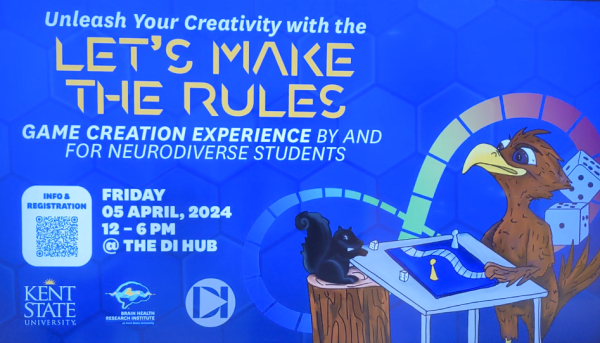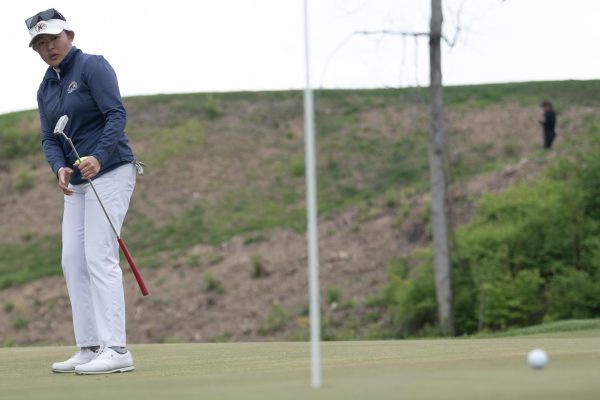A free-falling experience
November 20, 2007
Canton Air Sports offers three methods for skydiving – accellerated free fall, static line and tandem. During tandem skydiving the participants jump from the plane at 14,000 feet for a freefall at around 120 mph. Photo courtesy of Canton Air Sports
Credit: Ron Soltys
Anna Lueschen, sophomore international relations major, said she would definitely go skydiving again.
“It’s just a crazy feeling,” she said. “You are peaceful as you fall plus a crazy burst of adrenaline.”
A skydiving adventure like Lueschen’s is just 30 minutes away at Canton Air Sports, located near Alliance. The facility is open year-round and has many different jumps for beginners and experts alike. There is also a $30 college ID discount available at canton-airsports.com.
Owner and operator Rodger Conley said there is classroom training with any jump. The training teaches the jumper how the equipment works and to prepare them in case there is an emergency.
“The main thing to learn in class is emergency situations,” Conley said. “They are very safe parachutes, but in case something goes wrong, you need to know how to fix it.”
There are many different jumps to do, but Conley said he recommends the tandem jump, which is where an instructor is strapped to the jumper’s back and pulls the ripcord. This jump requires little instruction because an instructor is there for the jump. Conley said a jumper who decides to do tandem can be up in the air within an hour depending on wind and the weather. The tandem jump is $229.
“Tandem is better for landing,” Conley said. “The parachutes are very forgiving because you can have a tip-toe landing. Plus one tandem jump can take care of hours of classroom learning.”
Conley said the most popular jump with students is the static line because the price is lower at $179. This jump involves hanging onto the plane and dropping. The parachute automatically activates during the fall.
Another jump for beginners is the accelerated freefall. The accelerated freefall is when there are two instructors that hold either side of the jumper and when the ripcord is pulled, they let go and let the jumper descend alone. This is the most expensive at $319 and requires more training. Conley said he suggests planning to commit a whole day to training and the jump for the accelerated freefall.
“I think it would be really cool to learn how to do it by myself but not anytime soon because I don’t have the money,” Lueschen said. “I would definitely do it again.”
Conley has been teaching people how to skydive since 1974, but his interest in skydiving started before that.
He started flying planes in 1968, and someone he worked with found out that he was a pilot and wondered if he had jumped out of his plane before, which Conley said he hadn’t.
Conley and his friend then found a place to skydive and jumped. Then, Conley went and got his commercial license to fly jumpers.
“We made about 100 jumps,” Conley said. “If it wasn’t for him, I wouldn’t be doing this.”
He wanted some place closer to fly so he moved to East Center Road in Canton. He bought a plane then started a flight school, skydiving school and plane maintenance shop and added aerial advertising services. When Conley was forced to move, Kent State alumnus Forrest Barber offered to lease him six acres where he presently is. Now, he only does skydiving and an occasional aerial banner.
Canton Air Sports has about a thousand jumpers per year. The jumpers range in age from 16, the minimum age, to 90. They also have had paraplegic and autistic jumpers. Conley said they just have to train a little more.
“There are usually two to three paraplegic jumps per year,” he said. “We just have them land in the water, which we train them for.”
He said in 34 years there have only been two people who have backed out once they are in the plane, and he said teaching skydiving is a rewarding experience.
“The people rub off on you,” Conley said. “The difference it makes in people’s lives and to see people experience it for the first time is great. It certainly isn’t for the money.”
Contact news correspondent Emily Andrews at [email protected].























